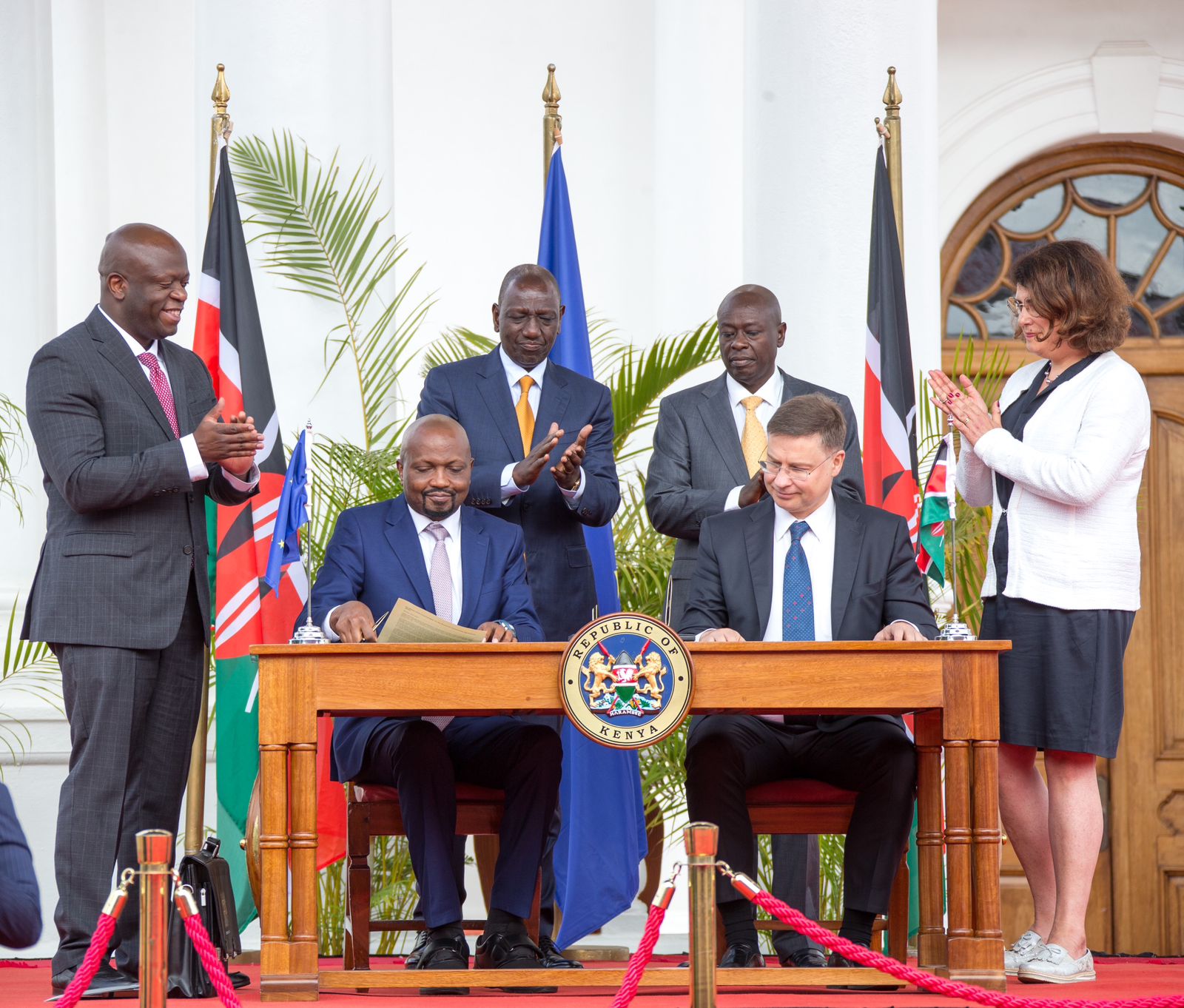Kenya and the European Union (EU) signed an Economic Partnership Agreement (EPA) at State House in Nairobi on Monday, June 19.
European Commission’s Executive Vice-President and Commissioner for Trade Valdis Dombrovski and Kenya’s Trade Minister Moses Kuria sealed the deal expected to boost trade between Kenya and the EU.
In a statement, the EU noted that the EU, Kenya trade deal will open the EU market for Kenyan products and incentivize investment from the European trade bloc in the East African nation.
Further, the EU described the agreement as the most ambitious trade deal with a developing nation “when it comes to sustainability provisions such as climate and environmental protection and labour rights.”
According to the EU, the deal will look to build on Kenya’s track record as a pioneer in sustainability efforts in Africa through various commitments.
“The deal contains strong trade and sustainability commitments, including binding provisions on labour matters, gender equality, environment and the fight against climate change,” a statement by the EU read in part.
“This is a balanced agreement, taking into account Kenya’s development needs by allowing it a longer period to gradually open its market, safeguards for agriculture, and protection of its developing industry.”
Ruto lauds EU, Kenya trade deal
In his speech, Kenya’s President William Ruto lauded the agreement noting that it would strengthen Kenya’s efforts of tackling climate change and promote sustainable trade.
In addition, the head of state stated that the partnership will cement Kenya’s position as a key regional hub for European countries in tw region.
“A further achievement of the negotiated agreement is that it anchors Kenya as the natural Hub for European companies seeking markets in the East African Community (EAC), COMESA, SADC and the African Continental Free Trade Area,” the President remarked.
Kenya is set to enjoy, among other privileges, quota and duty free entry of its exports into the EU, marked for Kenya’s farm produce, and private sector investments.
However, the EU, Kenya trade deal is still subject to revision and ratification by EU member states before processing to the implementation stage.
The signing ended a protracted period of negotiation between the two parties.
Initially, the EU was to enter into a partnership deal with members of the East African Community (EAC), a regional bloc bringing together over six countries.
However, Tanzania and Uganda pulled out of the deal, citing some provisions of the deal they deemed to be unfair.

